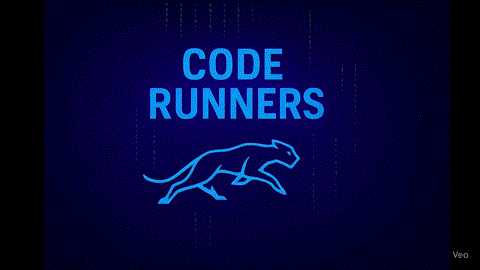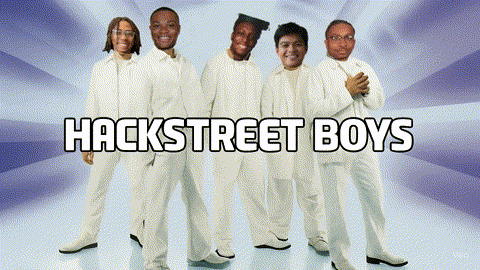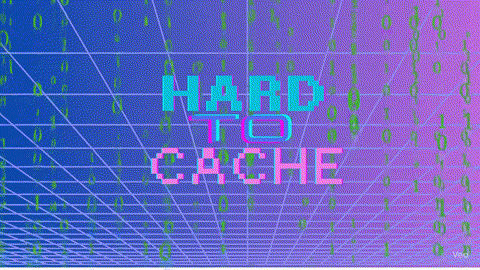 SGX3's Association of Computer Science Departments at Minority Institutions (ADMI) Hackathon
will take place June 23 - 27, 2025 virtually. The teams will focus on the application of Science Gateway development skills as an extention to the ADMI 2025 Symposium on Computing at Minority Institutions theme
"Reproducible Science". Pre-training events have been provided in coordiniation with the SGX3 2025 Virtual Coding Institute.
SGX3's Association of Computer Science Departments at Minority Institutions (ADMI) Hackathon
will take place June 23 - 27, 2025 virtually. The teams will focus on the application of Science Gateway development skills as an extention to the ADMI 2025 Symposium on Computing at Minority Institutions theme
"Reproducible Science". Pre-training events have been provided in coordiniation with the SGX3 2025 Virtual Coding Institute.
Prior Events:
Project Teams
Event Staff
Nole Stites
Southern Oregon University
Nole Stites is a recent Computer Science graduate from Southern Oregon University with a passion for computing education and research. He served as a 2025 SGX3 Coding Institute Trainer, mentoring undergraduates in UNIX and Python while guiding reproducible science projects during the ADMI Hackathon. Nole previously led a six-month research project on quantum computing pedagogy, culminating in a public lecture for CS students. With international study experience at Shinshu University and a track record in tutoring and technical support, he combines technical depth with a commitment to teaching—positioning him as an emerging leader in computer science education.
Why Reproducible Science Matters
Imagine baking a cake and getting it just right—the perfect flavor, texture, and look. Now, imagine someone else wants to bake that same cake using your recipe. If they follow your steps exactly but get a totally different result, something's off, right? That's where reproducible science comes in. In research, especially in HPC and AI, reproducibility means that someone else can take your code, your data, and your instructions, and get the same results you did. It’s how we make sure science is honest, reliable, and useful for the future.What is Reproducible Science?
In fields like AI and high-performance computing, scientists often run complex simulations or train massive models on supercomputers. These systems can be tricky—tiny changes in code, hardware, or settings can completely change the outcome. If we don’t track everything carefully, even we might not be able to repeat our own work later!Why is Reproducibility Important?
✅ Trust: Other scientists (and the public) can trust your results.✅ Progress: Reproducible work can be built on, leading to faster scientific breakthroughs.
✅ Learning: Future researchers can learn from your methods and avoid repeating mistakes.
✅ Teamwork: It’s easier for teams to collaborate when everything is clearly documented and repeatable.
How Do We Achieve Reproducibility?
To keep our science reproducible, we:- Save and share the exact versions of our code and software
- Use tools like containers to freeze the computing environment in time
- Write clear documentation so others know what we did and why
- Track how our data moves and changes, step by step>
About the ADMI25 Hackathon
When:
June 23 - 27, 2025Where:
Virtual via ZoomWho:
Persons that have an interest in gaining high-performance computing, science gateways development, and/or data analysis skills in an applied hands-on manner. That includes but is not limited to Students (Certificate seeking/Undergraduate/Graduate/Postgraduate), Faculty/Teachers, Staff, Researchers, and Subject Matter Experts. With coding/research/analysis skill levels ranging from Beginner ( I am in my first course and/or I have heard about it ) to Expert ( I do this professionally and/or publish research ) and everything in between.This includes persons from:
- Colleges/Universities (Certificate Granting/2yr/4yr/Non-Doctoral Granting/Doctoral Granting)
- Public and Private Organizations
- Companies Small, Medium, and Large
- National Laboratories
- Local/Federal/National Agencies
- In short, YOU!!!
Supporters
Information Posts
-
Project Plan Guide
Sure! Here’s a friendly, humorous blog-style entry written from the perspective of a mentor guiding undergraduate students through their 5-day ADMI25 Hackathon adventure on reproducible science: 🛠️ “Keep Calm and Reproduce On”: A 5-Day Hackathon Survival Guide for Building Your Project Plan Hey team! So you’ve bravely entered the world of H... Read More
-
Timeline Guide
Your Guide to the SGX3 HackHPC@ADMI25 Hackathon Timeline Welcome to the SGX3 HackHPC@ADMI25 Hackathon — a hands-on, fast-paced event where you’ll explore reproducible science in high-performance computing (HPC) using real research papers and powerful tools. This guide is for future undergraduate participants and Science Gateway developers who ... Read More
-
Deliverables Guide
Hackathon Deliverables Guide To successfully complete the hackathon, your team must submit the following deliverables. These showcase your project, from code to presentation, and demonstrate your efforts in evaluating the reproducibility of scientific papers. All deliverables should be organized, professional, and easy to access. 1. GitHub Rep... Read More
-
SGX3 Code of Conduct
All attendees, sponsors, partners, volunteers and staff at our hackathon are required to agree with the following code of conduct. Organizers will enforce this code throughout the event. We expect cooperation from all participants to ensure a safe environment for everybody. Science Gateways Code of Conduct 1. Respect and Inclusivity Treat ... Read More
-
Code of Conduct
All attendees, sponsors, partners, volunteers and staff at our hackathon are required to agree with the following code of conduct. Organizers will enforce this code throughout the event. We expect cooperation from all participants to ensure a safe environment for everybody. Summary Our hackathon is dedicated to providing a harassment-free e... Read More






